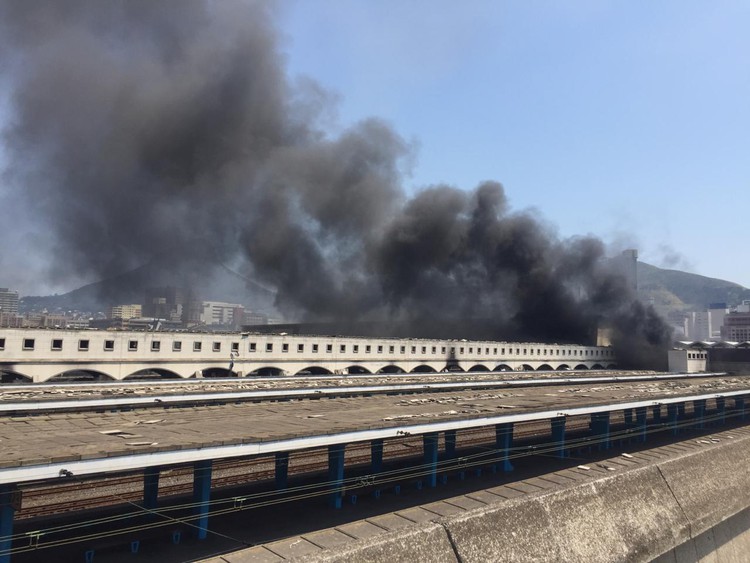GROUNDVIEW: Our train service is a victim of state capture
PRASA’s corruption has cost lives and left commuters across the country in distress
The damage caused by state capture can sometimes seem abstract. State revenues don’t get to go where they are supposed to, and slowly, over time, state institutions either decline or don’t improve as much as they should. This can be hard for us to notice.
The one obvious exception of course is load-shedding. But there is an even more glaring example of state capture that has directly hurt hundreds of thousands, if not millions, of working class people: the grand-scale theft that has taken place at the Passenger Rail Agency of South Africa (PRASA). Leaked documents, known as #PRASALeaks have laid bare the extent of the corruption.
Train safety has deteriorated causing deaths and injuries. The Pretoria accident this month, in part a consequence of broken signalling systems, exemplifies this. In Cape Town commuters stand anxiously on township platforms, trying to estimate whether they should risk waiting a bit longer for an inevitably delayed train, or pay extra for a dangerous taxi ride to the city centre, even if they’ve already paid for a monthly Metrorail ticket.
This week we report Metrorail’s deterioration in Gauteng, and the possibility that the Railway Safety Regulator will suspend commuter train services across the country. (See this Daily Maverick report on PRASA’s patchy progress addressing safety concerns.)
We also report that Mthura Swartz, implicated by activist group #UniteBehind as one of the main state capturers, has been dismissed from PRASA. The ruling of his disciplinary hearing is damning. Swartz also appeared in a Port Elizabeth court this week on several corruption-related charges. He denies any wrongdoing.
#UniteBehind has also lodged a complaint against a judge who simultaneously chaired the PRASA board while being appointed to the judiciary, a violation of judicial ethics.
There are many more accused of corruption who have not had their day in court, such as former CEO Lucky Montana.
And over the past couple of years arson attacks have destroyed dozens of carriages in Cape Town. The arsonists have taken advantage of PRASA’s dire lack of security. Reporters and activists have hunches about who is behind it, but we simply don’t have the evidence to connect the dots so we can’t make our guesses public.
Running an efficient commuter train service is not a trivial undertaking. But many cities in countries with problems comparable to South Africa get it right: Mexico City, Buenos Aires, Moscow are just a few examples.
South Africa has never had a brilliant commuter train service. Under apartheid black people had the indignity of being forced to sit in separate, inferior carriages (the remnants of that system still remain, euphemistically called Metrorail vs Metrorail Plus). But in the late 1990s the service was competent enough that we should have expected Metrorail in our major cities to be world class by today. There is nothing abstract about the way state capture has scuppered that expectation.
Support independent journalism
Donate using Payfast

Don't miss out on the latest news
We respect your privacy, and promise we won't spam you.
Next: Elderly residents of Durban have waited decades, in vain, for housing
Previous: SAPS appeals police resources judgment
© 2019 GroundUp.
This article is licensed under a Creative Commons Attribution-NoDerivatives 4.0 International License.
You may republish this article, so long as you credit the authors and GroundUp, and do not change the text. Please include a link back to the original article.

